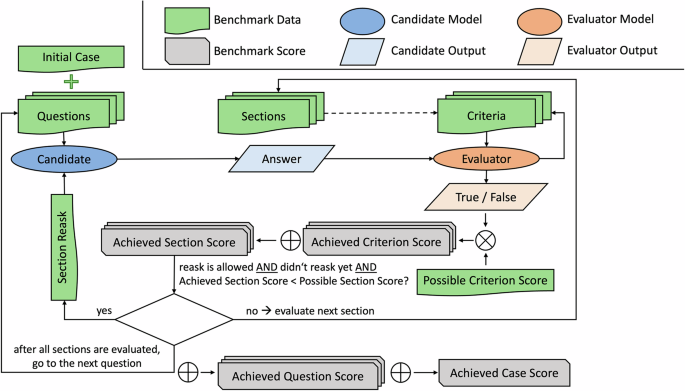Autonomous medical evaluation for guideline adherence of large language models
IF 12.4
1区 医学
Q1 HEALTH CARE SCIENCES & SERVICES
引用次数: 0
Abstract
Autonomous Medical Evaluation for Guideline Adherence (AMEGA) is a comprehensive benchmark designed to evaluate large language models’ adherence to medical guidelines across 20 diagnostic scenarios spanning 13 specialties. It includes an evaluation framework and methodology to assess models’ capabilities in medical reasoning, differential diagnosis, treatment planning, and guideline adherence, using open-ended questions that mirror real-world clinical interactions. It includes 135 questions and 1337 weighted scoring elements designed to assess comprehensive medical knowledge. In tests of 17 LLMs, GPT-4 scored highest with 41.9/50, followed closely by Llama-3 70B and WizardLM-2-8x22B. For comparison, a recent medical graduate scored 25.8/50. The benchmark introduces novel content to avoid the issue of LLMs memorizing existing medical data. AMEGA’s publicly available code supports further research in AI-assisted clinical decision-making, aiming to enhance patient care by aiding clinicians in diagnosis and treatment under time constraints.


求助全文
约1分钟内获得全文
求助全文
来源期刊

NPJ Digital Medicine
Multiple-
CiteScore
25.10
自引率
3.30%
发文量
170
审稿时长
15 weeks
期刊介绍:
npj Digital Medicine is an online open-access journal that focuses on publishing peer-reviewed research in the field of digital medicine. The journal covers various aspects of digital medicine, including the application and implementation of digital and mobile technologies in clinical settings, virtual healthcare, and the use of artificial intelligence and informatics.
The primary goal of the journal is to support innovation and the advancement of healthcare through the integration of new digital and mobile technologies. When determining if a manuscript is suitable for publication, the journal considers four important criteria: novelty, clinical relevance, scientific rigor, and digital innovation.
 求助内容:
求助内容: 应助结果提醒方式:
应助结果提醒方式:


